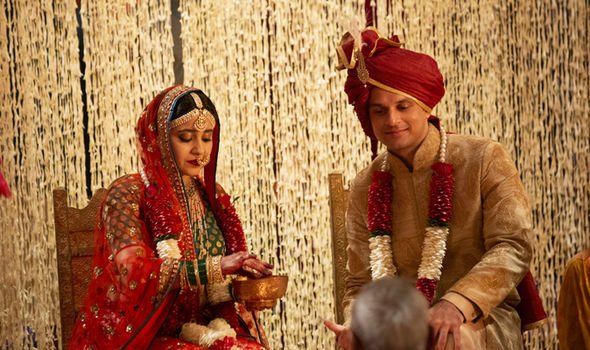
You are likely living under a stone if you don’t know about the much-valued Amazon Prime web arrangement, ‘Made in Heaven.’ Helmed by Zoya Akhtar and group, the show has taken the crowds by a storm with its reformist grandstand of present-day Indian culture while spinning around weddings.
The show is an account of two amigos, Tara and Karan, who run a wedding arranging organization called ‘Made in Heaven.’ Every scene accompanies another marry to-be couple and whose wedding is arranged by Karan and Tara’s wedding arranging organization.
The show covers hard-hitting issues with every scene, for example, LGBT topics, class-partition, self-personality, power battle, working ladies, endowment, thus substantially more. The show is by and large enormously cherished by the majority for its reformist substance. Furthermore, we can’t help but concur.
We also marathon watched this arrangement (we needed to, all things considered, it is about weddings) and adored it for multiple reasons. Directly from giving us a knowledge of wedding arranging franticness to flood us with design motivation and compelling our psyches to consider many fundamental issues—Made In Heaven did everything. In any case, what we love the most about this arrangement is how splendidly it has additionally figured out how to break a ton of generalizations that continue in our general public relating to adore and relationships.
- Mature-age relationships are Okay!

In one of the scenes, Tara and Karan are recruited to design Gayatri Mathur’s wedding, a sixty or more widow, with Bijoy Chatterjee, a Bengali designer. Their lives were denied of accomplices until they risked upon one another at a memorial service. Shared preference for one another leads them to get hitched. However, this choice turns out poorly with Gayatri’s children, what themselves’ identity is hitched, have children to deal with, and have separate existences from their mom in different urban communities. Her children won’t acknowledge her will to get hitched in her late sixties, inferable from the cumbersomeness and disgrace issues. It is just when Karan by and by causes them to see how Gayatri will, in any case, remain denied of adoration for the remainder of her life and pass on alone that her children readily join their mom on her big day.
The show genuinely experienced everybody with the truth that it is alright to discover love, get hitched, and have their own life even in later long stretches of life.
- Leave love alone!
It is 2019; segment 377 has been prohibited from the Indian constitution. Unfortunately, in the ground reality, the disgrace relating to LGBTQ continues. Made in Heaven exhibited something similar by having a gay hero who wasn’t simply a heap of generalizations. Karan played a gay character; his life is brimming with battles, personality emergency, acknowledgment issues from family, and most extreme authenticity with no gleaming shades. Be that as it may, amid his devastation like life, it is amazingly charming to watch his account of genuine affection with Nawab Khan.
The show has made a decent attempt to standardize gay sex and articulate love as a resource unbounded with sex. We are altogether hearts for it! Here’s the connection, perhaps the most beautiful gay wedding we as of late distributed on the blog.

- It is Okay to move out from an awful marriage
When Tara becomes more acquainted with her significant other’s extramarital issue with her closest companion, reality hits her truly hard. She makes an honest effort to pardon her better half, sort up the wreck, and wishes to accept parenthood with her significant other. In any case, when nothing appears to work, and her better half actually keeps on having associations with her sweetheart, Tara audaciously leaves the marriage (with gobs adornments, however).

- Try not to surrender to the Dowry pressure!
Goodness, and how might we not discuss existing apart from everything else when the lady calls of the wedding ultimately and leaves the mandap when she comes to realize that her would-be-spouse and his family requested an astounding whole as share. The specific scene cruelly portrays how even knowledgeable families have ‘rates’ set for their child’s marriage that they anticipate that the bride’s family should pay to wed him.
- Try not to overspend only for pressing cultural factor
Overspending for the wedding is something else most Indians are liable for! A wedding is irrefutably a matter of festivity and has the right to be facilitated with the most extreme ceremony and show; be that as it may, just if the pocket permits. It is sheer silliness to stall yourself with powerful credits only for pressing cultural factors.
A scene shows a lady of the hour is a big deal high-roller for her fantasy wedding without understanding that her dad has obliged himself to satisfy her girl’s desires. In a similar scene, we perceive how a peon working at Made In Heaven is prepared to take credit to offer his little girl show-shaa. That is when Karan and Tara act the hero and benevolently prepare for his girl’s wedding. In any case, they additionally cause him to comprehend and convey a solid message that it is an ineptitude to trouble oneself with the obligation to have a lovely wedding.